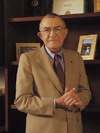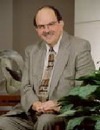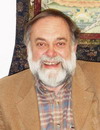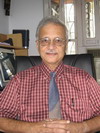His Majesty King Bhumibol Adulyadej graciously granted permission for the establishment of the “Prince Mahidol Award” in commemoration of the centenary of the Birthday Anniversary of His Royal Highness Prince Mahidol of Songkla on January 1st, 1992. The Award is administered by the Prince Mahidol Award Foundation under the Royal Patronage of which Her Royal Highness Princess Maha Chakri Sirindhorn is the President. The Foundation confers two international awards each year—one for the exemplary contributions in the field of medicine and the other in the field of public health.
In 2006, there are a total of 59 nominations from 29 countries around the world. The Scientific Advisory Committee carefully screened and submitted the short list to the International Award Committee who scrutinized and made a recommendation for the Award laureates to the Board of Trustees. H.R.H. Princess Maha Chakri Sirindhorn presided over the meeting of the Board of Trustees in which the final decision on the Award laureates was made.
On November 1st, 2006, the Board of Trustees made a unanimous decision to confer the Prince Mahidol Award for 2006 to a group of medical professionals who, during the 1960s and the 1970s, had dedicated their lives to the discovery, the introduction, and the widespread use of “Oral Rehydration Solultion (ORS) or Oral Rehydration Therapy (ORT).” This simple, inexpensive, but effective treatment of severe diarrhea can be practiced by patients and their household members themselves. The treatment has been used worldwide, both in the developed and in the developing countries alike. It is estimated that the introduction of the ORT has saved more than 40 million lives in the past 30 years.
The discovery and introduction of Oral Rehydration Therapy is a major achievement in the human health service by applying “appropriate technology” based on scientifically-proven clinical research. The Lancet, a very prestigious medical journal, has recognized the ORT as “the most important medical discovery of the 20th century”.
Four of the most distinguished scholars and scientists are conferred the Prince Mahidol Awards for 2006:
In the Field of Medicine:
 Professor Stanley G. Schultz, MD. is the former Dean of the University of Texas Medical School at Houston in Texas, U.SA. He is now Professor of the Department of Integrative Biology Pharmacology, University of Texas Madical School at Houston, Taxas, U.S.A. In the 1960s, Dr. Schultz and his team demonstrated that glucose and sodium absorption in the small intestine was intimately coupled, and glucose could facilitate the absorption of sodium and water.
This pioneering work provided the scientific foundation for the use of the oral rehydration solution consisting of salt, sugar and water in the treatment of dehydration in diarrhea patients. Since the early 1970s, the ORT has continuously benefited the lives of millions of children each year all over the world. Dr. Schultz is also known to be a great teacher, receiving several teaching awards including Teacher of the Year award from the American Physiological Society.
|
In the Field of Public Health:
 David R. Nalin, MD. Is the former Director of Vaccine Scientific Affairs. Merck Vaccine Division, Merck&Co. Inc., West Point, Pensylvania, U.S.A. Dr. David R. Nalin, was assigned, in the 1960s, to the Pakistan-SEATO Cholera Research Laboratory (CRL) in Dhaka, East Pakistan (presently, the capital city of Bangladesh) as a research associate at the US National Institutes of Health (NIH). Dr Nalin, Dr Richard Cash, and their colleagues successfully tested the efficacy of an oral glucose-electrolyte solution, later known as oral rehydration therapy (ORT), to be used instead of intravenous fluid for the treatment of patients with severe cholera.
This new treatment was tested in Matlab and then used by the Johns Hopkins University International Center for Medical Research and Training (ICMRT) in Calcutta in the refugee camps during the Liberation War of Bangladesh in 1971. Later as a WHO consultant, Dr Nalin has helped establish a number of highly successful national programs on the oral rehydration therapy for diarrhea diseases in Costa Rica, Jamaica, Jordan, and Pakistan.
|
|
 Richard A. Cash, MD, MPH. is Senior Lecturer on International Health at the Department of Population and International Health, Harvard University School of Public Health, Boston, U.S.A.
As a young clinician, right after finishing his internship in New York City, working at the Pakistan-SEATO Cholera Research Laboratory (CRL) in Dhaka in 1960s, Dr Cash had been involved in the first scientifically-proven successful clinical trial of testing the oral rehydration therapy on severe diarrhea patients. The trial has become a landmark for subsequently applying this treatment around the world.
|
|
 Dilip Mahalanabis, MD. is the Director of the Society for Applied Studies, a non-governmental research organization, in Kolkata, India.
Dr. Dilip Mahalanabis started his work on oral rehydration therapy in 1966 as a research investigator for Johns Hopkins University International Center for Medical Research and Training in Calcutta. During the Liberation War of Bangladesh in 1971, Dr. Mahalanabis used the ORT in the refugee camps which accommodated 350,000 refugees, in West Bengal.
Dr. Dilip Mahalanabis instructed his staff to distribute the ORT for the treatment of over 3,000 patients. With the ORT, the death rate dropped to only 3% in comparison with 20 – 30% using only intravenous fluid therapy. This was the first large – scale use of oral rehydration solution in a disaster situation. As a result, it gained the International health Organizations’ recognition and its application was spread worldwide.
|
The research works conducted by Dr. David R. Nalin, Dr. Richard A. Cash, and Dr. Dilip Mahalanabis have sequentially contributed to the application of the oral rehydration solution in the treatment of severe diarrhea worldwide, including Thailand. It is estimated that each year around 500 million packs of the oral rehydration solution is used in more than 60 developing countries, saving millions of lives around the world.Supat Vanichakarn MD., Worawut Smuthkalin, Ph.D.

